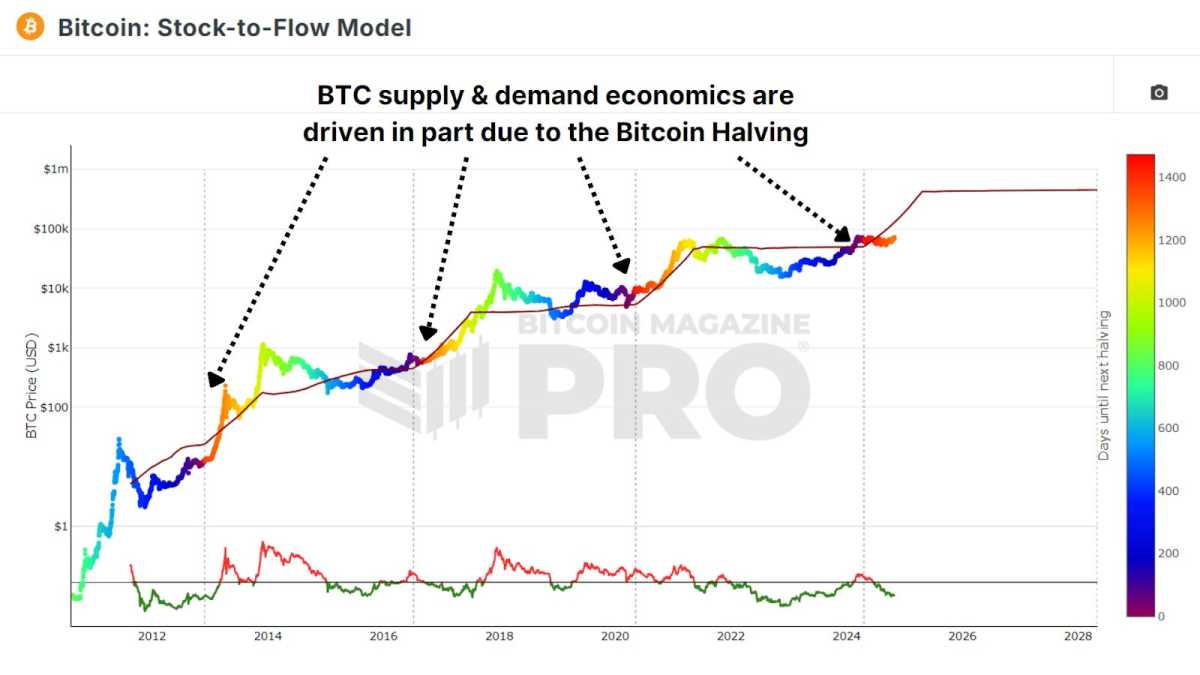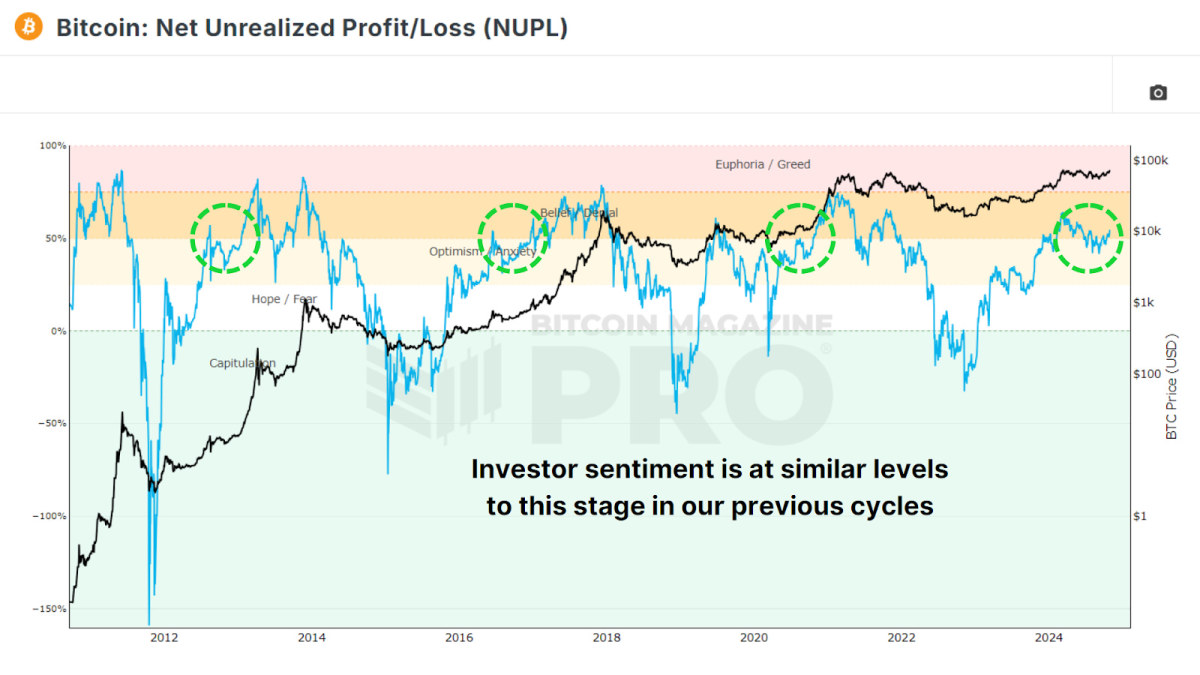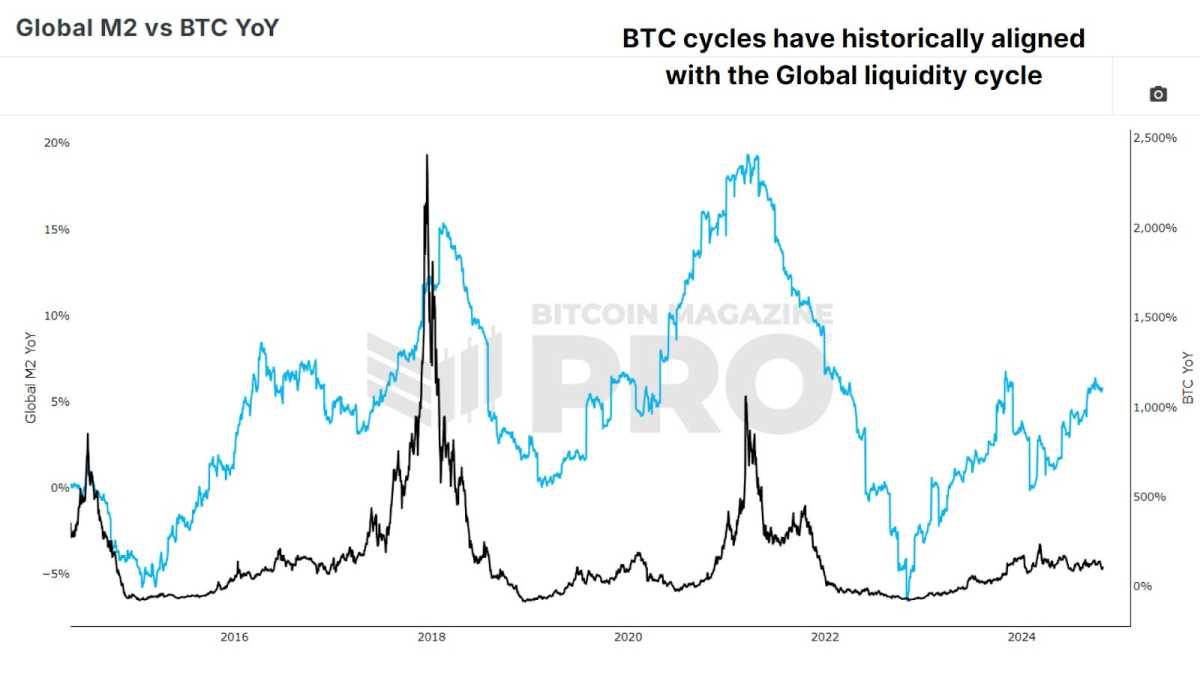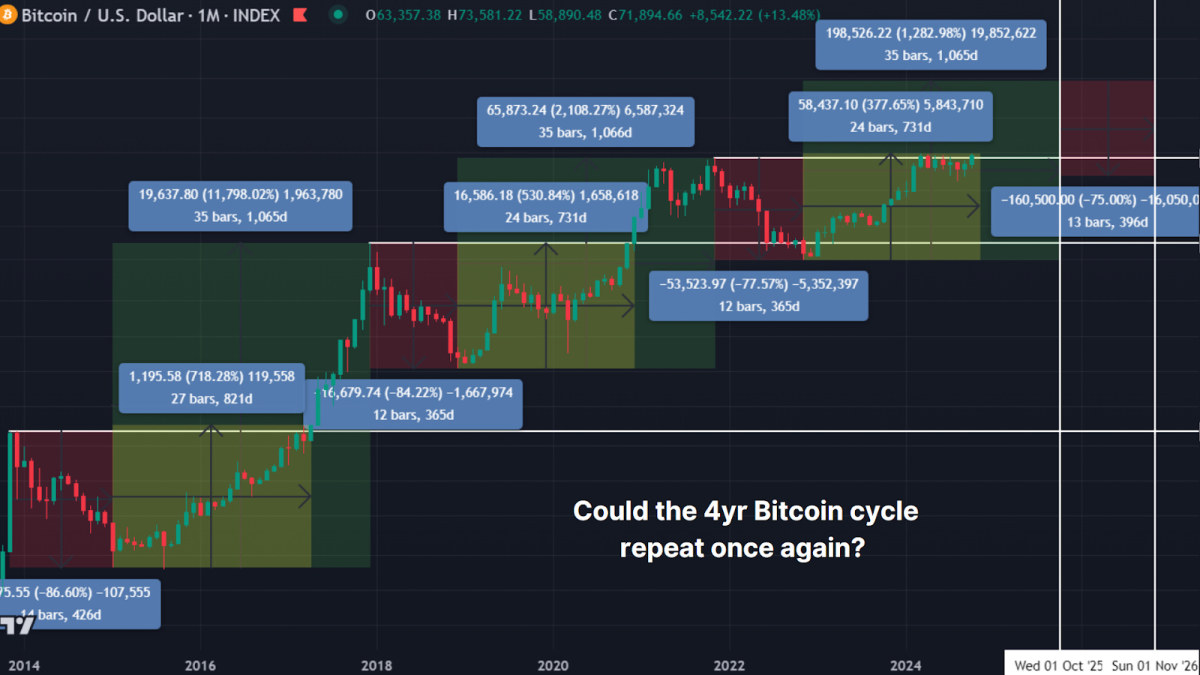Bitcoin has traditionally adopted a well-known four-year cycle. Now, two years into the present cycle, traders are intently watching patterns and market indicators for insights into what the following two years could maintain. This text dives into the anatomy of Bitcoin’s four-year cycle, previous market conduct, and future prospects.
The 4 Yr Cycle
Bitcoin’s four-year cycle is partly influenced by the scheduled halving occasions, which cut back the block reward miners obtain by 50% each 4 years. This halving decreases the provision of latest Bitcoin getting into the market, usually creating supply-demand pressures that may push costs greater.
This may be clearly visualized by the Inventory-to-Stream Mannequin, which compares the prevailing BTC in circulation to its inflationary price, and fashions a ‘fair-value’ based mostly on comparable exhausting property akin to Gold and Silver.

At the moment, we’re halfway by this cycle, which means we’re doubtlessly getting into a interval of exponential positive aspects as the everyday one yr catch-up section following the halving progresses.
A Look Again at 2022
Two years in the past, Bitcoin confronted a extreme crash amid a collection of company implosions. November 2022 marked the downfall of FTX, as rumors of insolvency triggered huge sell-offs. The domino impact was brutal, as different crypto establishments, akin to BlockFi, 3AC, Celsius, and Voyager Digital, additionally went underneath.

Bitcoin’s value tumbled from round $20,000 to $15,000, mirroring the broader market panic and leaving traders nervous about Bitcoin’s survival. Nonetheless, true to kind, Bitcoin rallied once more, climbing again up fivefold from the 2022 lows. Traders who weathered the storm had been rewarded, and this rebound helps the argument that Bitcoin’s cyclical nature stays intact.
Comparable Sentiment
Along with value patterns, investor sentiment additionally follows a predictable rhythm throughout every cycle. Analyzing the Web Unrealized Revenue and Loss (NUPL), a metric exhibiting unrealized positive aspects and losses available in the market, means that feelings like euphoria, worry, and capitulation repeat usually. Bitcoin traders sometimes face intense emotions of worry or pessimism throughout every bear market, solely to shift again towards optimism and euphoria as costs get well and rise. At the moment, we’re as soon as once more getting into the ‘Perception’ stage following our early cycle runup and subsequent consolidation.

The International Liquidity Cycle
The worldwide cash provide and cyclical liquidity, as measured by International M2 YoY vs BTC, has additionally adopted a four-year cycle. For example, M2 liquidity bottomed out in 2015 and 2018, simply as Bitcoin hit lows. In 2022, M2 once more hit a low level, completely aligning with Bitcoin’s bear market backside. Following these durations of financial contraction, we see fiscal enlargement throughout central banks and governments in all places, which ends up in extra favorable situations for Bitcoin value appreciation.

Acquainted Patterns
Historic value evaluation means that Bitcoin’s present trajectory is strikingly much like earlier cycles. From its lows, Bitcoin often takes round 24-26 months to interrupt previous earlier highs. Within the final cycle, it took 26 months; on this cycle, Bitcoin’s value is on an analogous upward trajectory after 24 months. Bitcoin has traditionally peaked about 35 months after its lows. If this sample holds, we might even see vital value will increase by October 2025, after which one other bear market might set in.
Following the anticipated peak, historical past suggests Bitcoin would enter a bear section in 2026, lasting roughly one yr till the following cycle begins anew. These patterns aren’t a assure however present a roadmap that Bitcoin has adhered to in earlier cycles. They provide a possible framework for traders to anticipate and adapt to the market.

Conclusion
Regardless of challenges, Bitcoin’s four-year cycle has endured, largely resulting from its provide schedule, world liquidity, and investor psychology. As such, the four-year cycle stays a worthwhile instrument for traders to interpret potential value actions in Bitcoin and our base case for the remainder of this cycle. Nonetheless, relying solely on this cycle could possibly be shortsighted. By incorporating on-chain metrics, liquidity evaluation, and real-time investor sentiment, data-driven approaches might help traders reply successfully to altering situations.
For a extra in-depth look into this matter, take a look at a current YouTube video right here: The 4 Yr Bitcoin Cycle – Half Approach Performed?

















![Cosmos [ATOM]: Merchants ought to look ahead to this key worth motion](https://sarkariresultbihar.info/wp-content/uploads/2024/11/News-Articles-FI-Editors-2024-11-21T100128.179-1000x600-120x86.jpg)